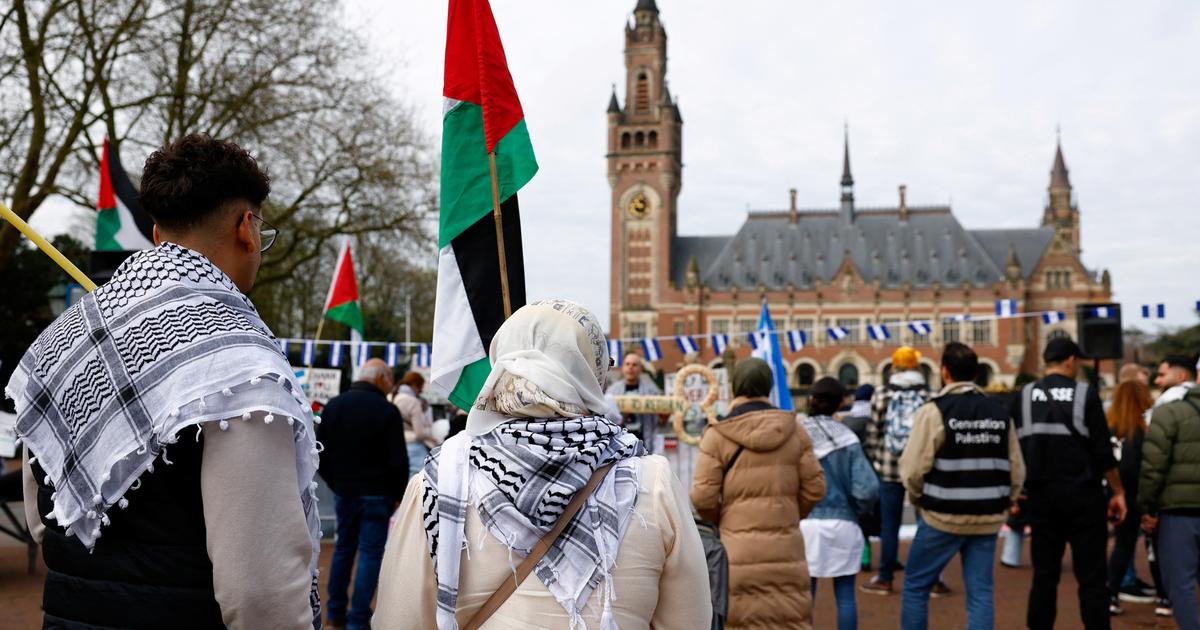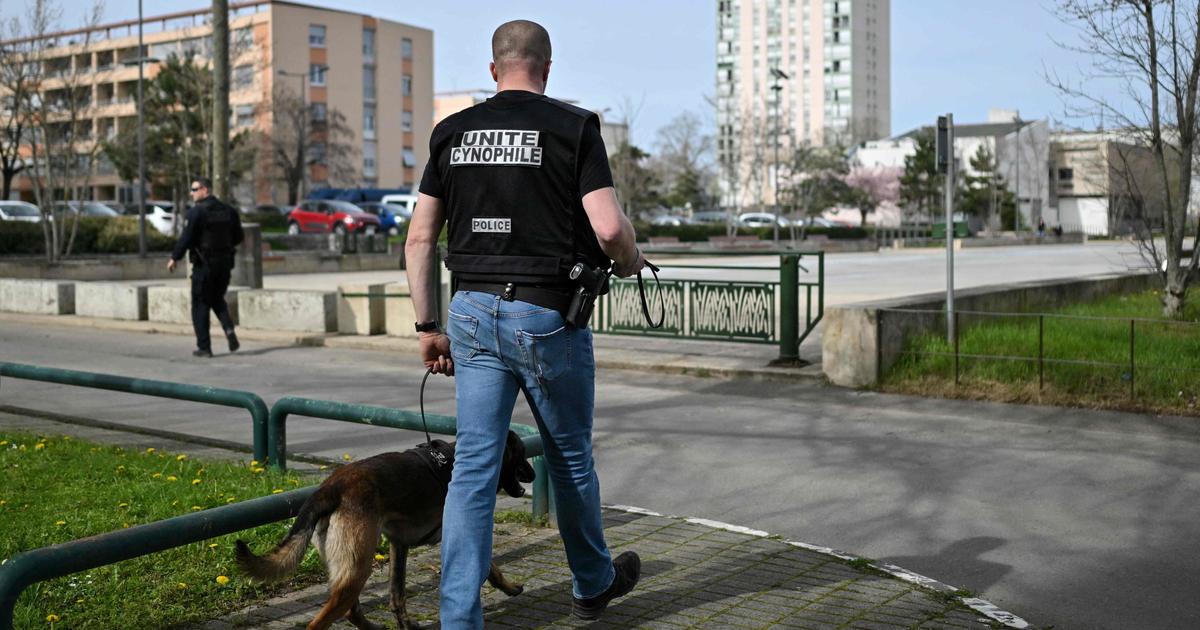SPIEGEL:
Mr. Isa, when was the last time you were in your home country - the Xinjiang region in north-west China?
Isa:
That was in 1994. Then I had to flee.
I heard that my name was on a Chinese government blacklist and feared arrest.
My crime: I rounded up hundreds of demonstrators in Xinjiang in 1988 – a year before the Tiananmen Square protests in Beijing.
We demanded democracy and an end to discrimination against the Uyghurs.
SPIEGEL:
The Uyghurs are Muslims and therefore a minority in China.
In 1949, when the People's Republic was founded, around 80 percent of Xinjiang's population were Uyghurs.
Today it is less than half.
How did that happen?
Isa:
We Uyghurs have been discriminated against for decades.
At the same time, Han Chinese were systematically settled in our region - and they were systematically preferred.
Their children were allowed to go to better schools and received a better university education.
In recent years, we Uyghurs were suddenly forbidden to pray, as well as fasting in Ramadan.
In addition, Chinese government cadres were sent to Xinjiang.
They moved in with Uyghur families - to promote national harmony, it was said.
In truth, they were minders.
In many cases, they forced Uyghurs to eat pork and drink alcohol.
Those who did not cooperate were arrested.
In addition, numerous mosques were destroyed and Muslim cemeteries leveled to the ground.
SPIEGEL:
When did you first hear about internment camps?
Isa:
I heard about Uyghurs who disappeared under mysterious circumstances.
Some reappeared after a month, others remained missing.
But the families didn't want to talk.
They were afraid that otherwise their relatives would be imprisoned again or not released at all.
In September 2017, Radio Free Asia reported for the first time, further articles followed, and gradually the extent of it became apparent.
SPIEGEL:
According to experts, at times more than a million Uyghurs were interned in Xinjiang.
That would be almost every tenth.
Your family was also affected...
Isa:
After I left China, the government classified me as a terrorist.
But I stayed in touch with my family.
Unfortunately, this was only possible over the phone, they didn't want to use Skype or WeChat, probably because they were forbidden to do so.
I'm sure all communications were monitored.
So the conversations were relatively simple: "Hi, how are you?
How are the relatives?”.
At some point, however, I realized that something was wrong.
Whenever I asked about my brother, my mother said he was on a business trip.
Then, when my wife called my mother, she burst into tears.
My brother ended up in one of the camps.
My mother asked never to be called again.
That was in 2017. Then a year later I got a call from a friend who told me
SPIEGEL:
What the Chinese authorities deny...
Isa:
You claim that my mother died in a hospital.
They owe a proof.
Both my brothers were sentenced to several years in prison.
And in 2020, the Global Times, a Chinese propaganda newspaper, reported that my father had also died.
SPIEGEL:
Your own older sister spoke up on Chinese state television - and criticized you.
Isa:
She was forced to do it, I'm sure of that.
She read a text.
She also spoke Chinese, although we actually always spoke to each other in Uyghur.
My sister, sister-in-law and niece were also in the video - just not my two brothers.
Because they were interned.
To this day I don't know how they're doing or if they're even still alive.
SPIEGEL:
It's now almost impossible for journalists to do research in Xinjiang.
People are afraid of state repression and therefore do not speak to anyone.
Anyone who speaks anyway will be locked away.
How else do you get information?
Isa:
The Chinese government started sealing off the region in 2016.
Internet access has been restricted and the last remaining international flights to Urumqi have been suspended.
Fewer and fewer Uyghurs were able to leave the country.
And so Xinjiang became a black box.
It was the German ethnologist Adrian Zenz who used Chinese government documents to document the construction of countless internment camps.
They could also be seen on satellite images.
Gradually, more and more Uyghurs in exile dared to make it public that their relatives in Xinjiang had disappeared.
We were able to collect the relevant evidence for more than 700 cases.
SPIEGEL
: The Xinjiang Police Files, which were leaked to SPIEGEL and other media, now give the interned Uyghurs a face for the first time.
The leaked Chinese documents include thousands of mug shots, but also secret speeches, security agency training documents and seemingly endless lists of camp inmates.
Isa:
Many Uyghurs in the diaspora finally have certainty about what happened to their relatives.
I hope that, given this new evidence, the international community will finally do something to end these atrocities.
SPIEGEL:
The Chinese government has always denied the allegations.
They weren't internment camps, but facilities for "free vocational training," was one statement...
Isa:
At first the government denied that there were any camps at all.
When that could no longer be denied, when they were shown on satellite images and relevant government documents were leaked, it was suddenly said that they were vocational training centers.
I'm sick of these lies
We Uyghurs are an educated people.
You can see how ridiculous the excuses are by the fact that medical students were interned.
Tashpolat Tiyip, the former president of Xinjiang University, was also sent to a camp.
If it really was about vocational training, why did my almost 80-year-old mother have to go to such an institution?
SPIEGEL:
In recent years, internal government documents have been regularly leaked that show that hundreds of thousands of Uyghurs have been interned and indoctrinated.
Some camps have apparently been closed since then, while others remain.
Is China now so powerful that it can simply ignore international criticism?
Isa:
If a country's criticism gets too loud, the economic ties are simply severed and China moves on.
That is why it is so important that the western world finally speaks with one voice and condemns this genocide.
SPIEGEL:
A number of countries have criticized China's actions.
Ironically, many Muslim countries continue to support China - a Muslim minority that is oppressed.
How does that fit together?
Isa:
Many Muslim countries remain silent and close their eyes to suffering.
SPIEGEL:
Countries like Saudi Arabia, Egypt and Pakistan aren't just silent.
On the contrary, they even partially cooperate with China.
Isa:
You are dependent on the Chinese economy and therefore do not dare to criticize it.
They also get military aid from China.
In addition, these states are not very particular about human rights themselves.
If they blame China, they risk finding themselves the center of international criticism.
Criticism of this is getting louder in Europe.
Thousands of people demonstrated in front of the Chinese Embassy in London last year.
But we know the limits of our influence.
SPIEGEL:
Another minority oppressed by the Chinese government are the Tibetans.
One gets the impression that the fate of the Tibetans received more public attention than the situation in Xinjiang.
Angela Merkel even personally received the Dalai Lama in 2007...
Isa:
Not me, on the other hand.
I've pushed for it several times, but it never got that far.
Chancellor Olaf Scholz and Foreign Minister Annalena Baerbock have not wanted to meet me either.
SPIEGEL:
Is Germany doing enough to support the Uyghurs?
After all, there is also a large Uyghur exile community in this country.
Isa:
I think that the federal government is far from doing enough.
There are human rights violations in many places, but this is about genocide.
»Never again« – has been Germany's credo since the Holocaust.
Now it's happening again: genocide - and Germany is watching.
SPIEGEL:
In Germany, the term "genocide" is inevitably associated with the mass murder of millions of Jews.
And the Holocaust is seen as unique.
Isa:
I don't want to compare the fate of the Uyghurs with that of the Jews in Nazi Germany either.
However, I see the criteria for genocide according to the UN Convention on International Law as having been in place for a long time in Xinjiang.
There are mass detentions and reports of forced sterilizations.
Uyghurs should renounce their religion, our culture should be literally wiped out.
The parliaments in the USA, Canada and the Netherlands have long been talking about genocide.
But one thing must be clear: as long as Germany does not take a clear position, this will help the Chinese regime.
The German and Chinese economies are closely linked, which means there is a certain potential for pressure.
SPIEGEL:
China is an important sales market for German companies.
Some companies even have their own factories in Xinjiang, such as Volkswagen.
Isa:
Ironically, a company that is largely owned by the state and that employed forced laborers back in the Second World War is guilty again.
SPIEGEL:
According to its own statements, Volkswagen rules out the possibility of forced labor at its plant in Ürümqi.
Isa:
The company has a historical responsibility.
The camps are not far from the plant, there are media reports and even government documents that have now been leaked.
What else does VW need?
The company is guilty of turning a blind eye to the obvious.
We have therefore demonstrated several times in front of the gates of the plant in Wolfsburg, we have written letters and suggested personal meetings - but so far nobody has wanted to meet us.
That's a shame.
SPIEGEL:
The European Union already sanctioned several Chinese officials in 2021, and UN human rights commissioner Michelle Bachelet is also traveling to Xinjiang these days.
What do you think needs to happen to stop the oppression of the Uyghurs?
Isa:
It's good that the High Commissioner is finally making up her own mind.
But the visit only makes sense if she can move about freely.
On the other hand, if the Chinese government sets the agenda, it's useless.
There has long been enough evidence of human rights crimes.
The high commissioner just needs to meet survivors from the camps and hear their reports.
So far, however, Michelle Bachelet has refused to meet us.








